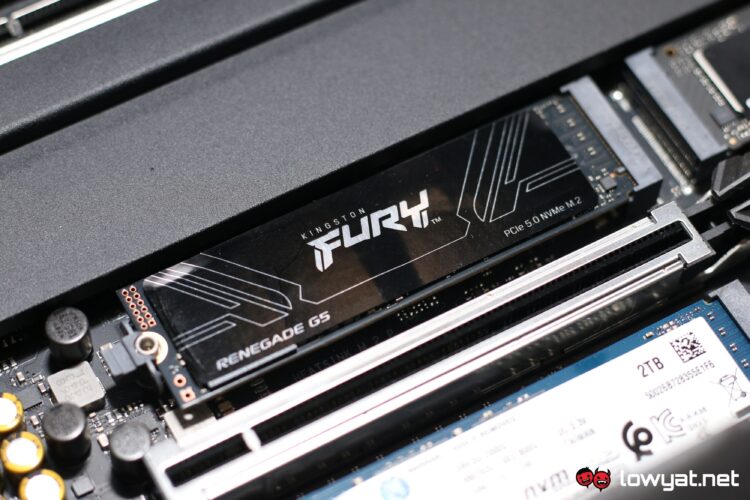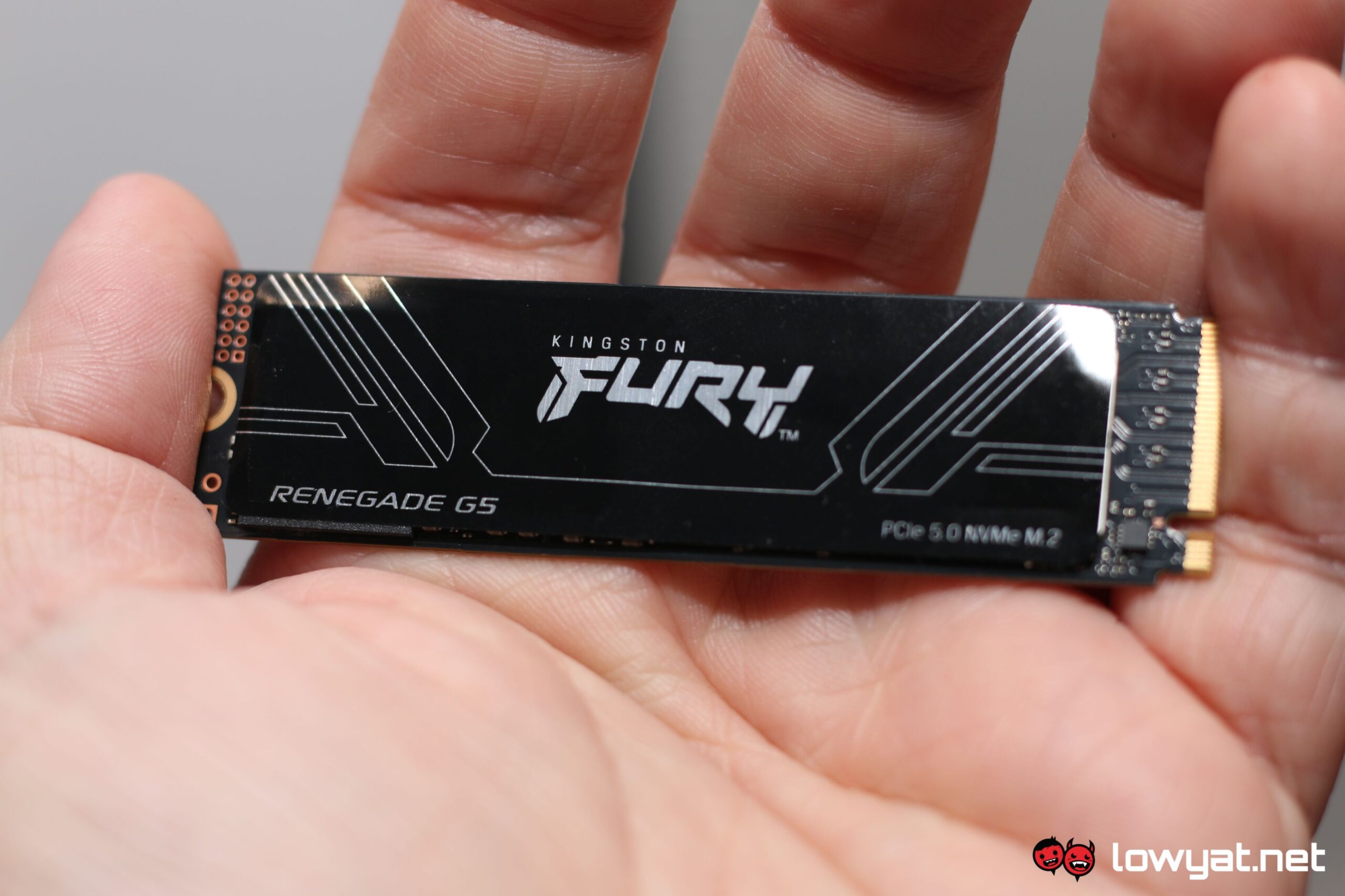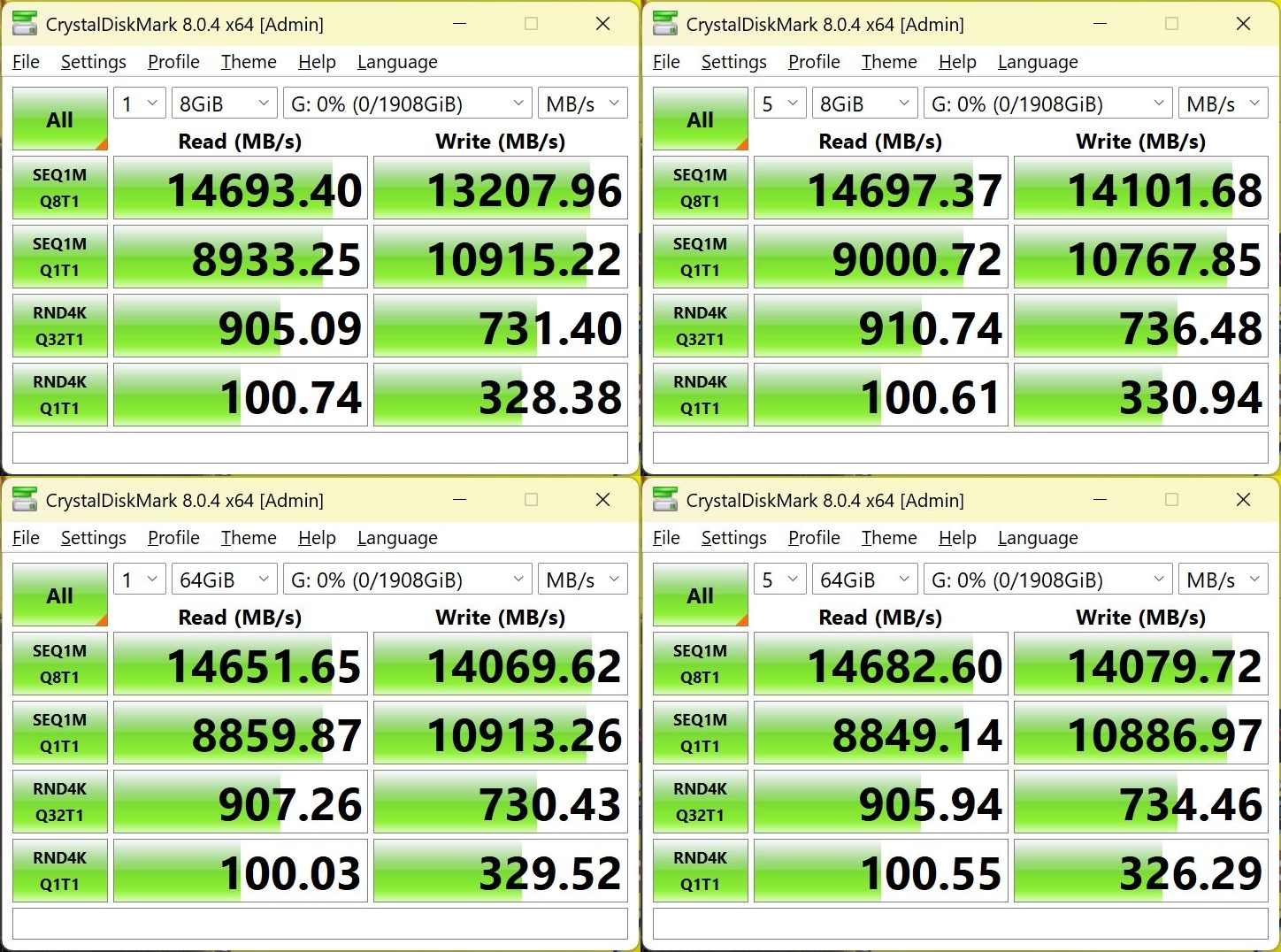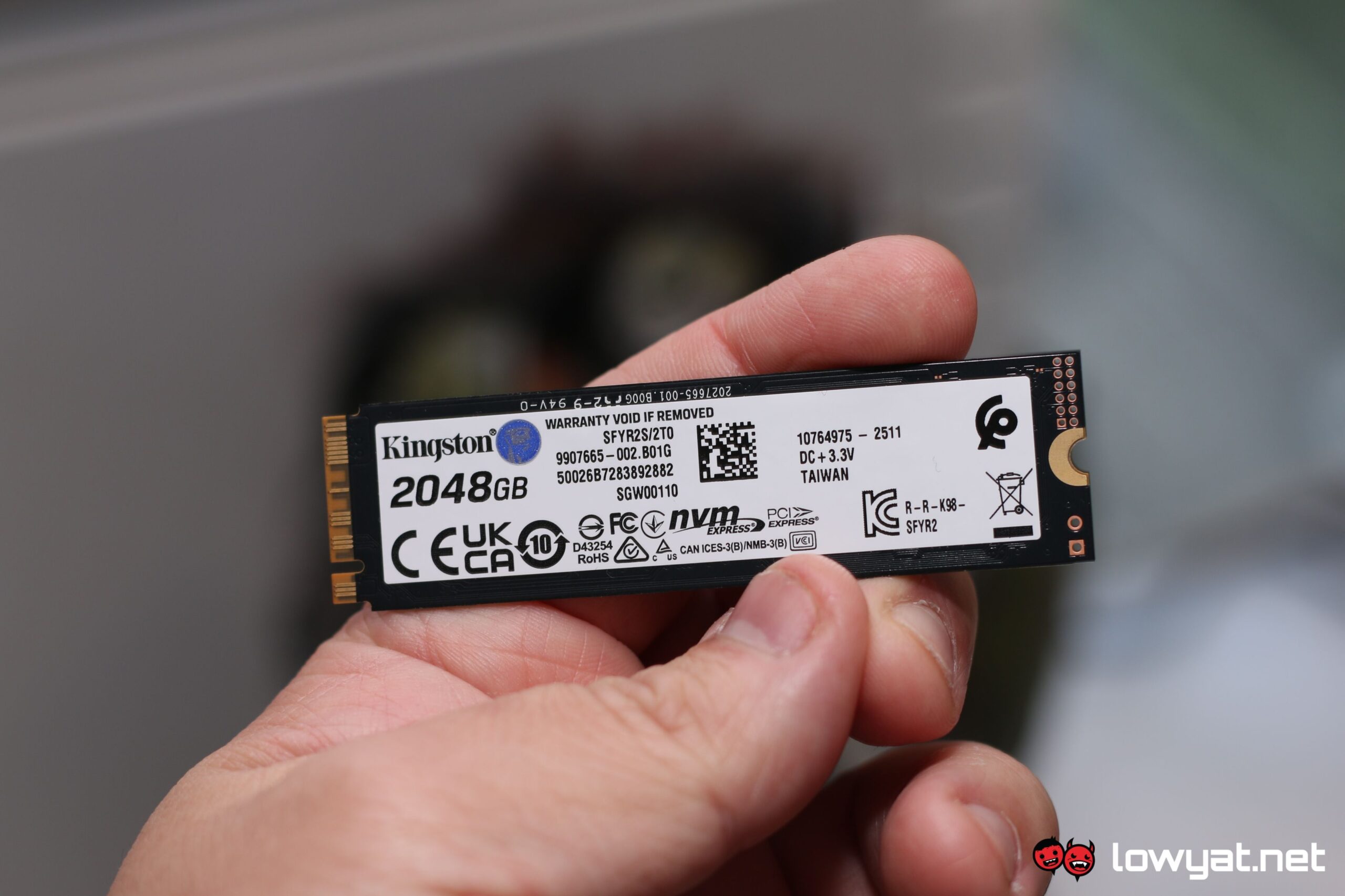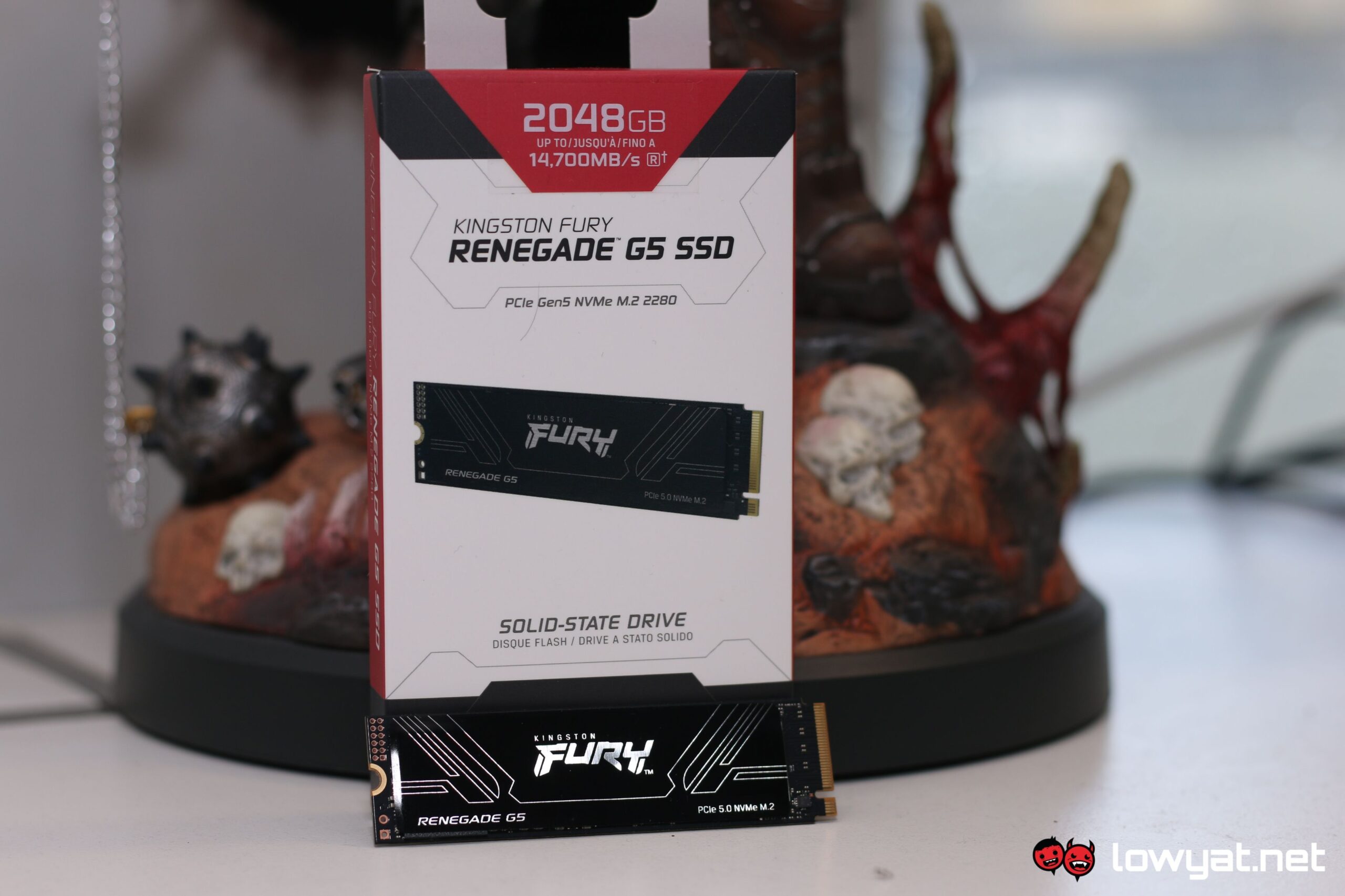As the world slowly gets comfortable and saturated with the PCIe Gen5 storage standard, Kingston is officially throwing its lot into the arena with the Fury Renegade G5. It’s a storage drive aimed at people that are looking for the next best thing, along with folks that are demanding something faster than the current PCIe 4.0 interface and standard.
What Am I Looking At?
The Renegade G5 is a PCIe Gen5 M.2 SSD built in the 2280 form factor, as is the standard. Beneath the hood – well, the thin heatsink strip essentially – lies the memory modules and controller. With regards to the latter, it is using a Silicon Motion SM2508, which is a common enough controller to be used by other memory and storage brands.
The Renegade G5 is also built using Kioxia’s 218-layer BiCS8 TLC NAND flash, which is a little interesting, given that most other brands would use Micron’s B58R controller. In terms of capacity, this SSD is available in three options: 1TB; 2TB, which is the model I have here; and 4TB.
What’s Good About It?
Performance of the Renegade G5 is pretty much as advertised. Regardless of the cycles and workload, the SSD maintains its 14.5GB/s sequential read and 14GB/s sequential write speeds across the board.
In terms of operating temperature, HWInfo shows our Renegade G5 hitting peaks of 90°C and staying there consistently, especially while having it run games. By the way, that temperature is fine, given that the silicon is designed to run at sustained temperatures like that and higher.
What’s The Catch?
The price of a near 15GB/s average sequential speed comes cheap, it doesn’t. Pricing for the Renegade G5 basically goes between RM850 and RM1000, while the 2TB variant will currently run you RM1,400 off the shelf. With the latter model, there are actually SSD options with 4TB capacities that cost about the same, such as the Acer Predator GM9.
Should I Buy It?
Honestly, as another PCIe 5.0 option on the market, the Kingston Fury Renegade G5 isn’t definitely a storage option to consider. Again, it’s a bit on the pricey side as far as SSDs go, but to be fair, its starting asking price across the board isn’t uncommon; Samsung’s asking price for its 9100 Pro is cheaper for 1TB, 2TB, and 4TB options, albeit by around RM100, and for very slightly slower sequential write speeds.
Would I recommend the Renegade G5? The answer is yes, but this is one of those cases where brand preference is the determining factor. Either way, just make sure your motherboard supports PCIe 5.0 interface. Otherwise, you’re better off just getting a PCIe 4.0 SSD instead.

